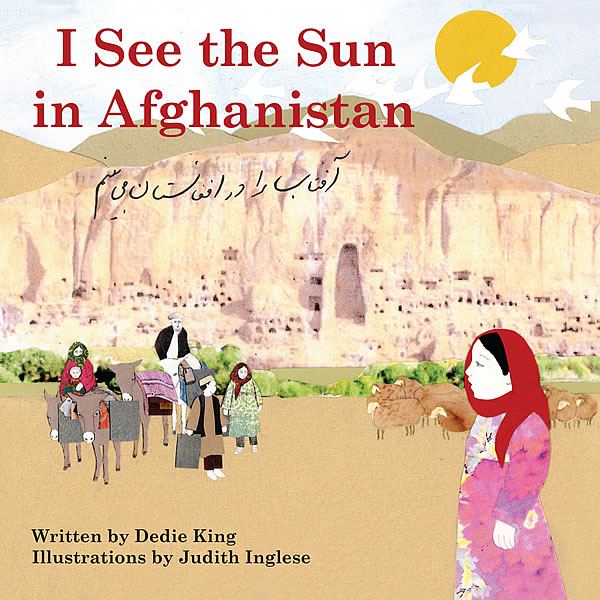I See the Sun in Afghanistan
$12.95
By Dedie King with illustrations by Judith Inglese
40 pages
ISBN: 978-0981872087
For children ages 4 and up
BANNED IN FLORIDA – Read Banned Books!
Currently out of stock here. More coming soon!
I See the Sun in Afghanistan is the third book in the award-winning I See the Sun series. The book provides a glimpse into the daily life of an Afghan family as seen through the eyes of Habiba, a young girl growing up in the town of Bamiyan. Without negating the realities of a war-torn country, this is a story that accurately and sensitively sheds light on the fact that Afghan children have the same basic needs and concerns as children everywhere: family, food and shelter, education, and security. Children will be able to recognize the similarities as well as the differences between their own daily life and the culture of Afghanistan.
More Options
Available on backorder
Description
… provides a window into the life of an Afghan girl while touching on the effects of war. Habiba awakens before dawn to gather water from the well, attends school, and spends time with her family; but in the afternoon, Habiba’s uncle (who has lost his legs), aunt, and cousins arrive—to stay. “I am happy to see my cousins,” Habiba thinks, “but I am also worried. How can so many people live together in our small house?” Inglese’s artwork is a haunting mixture of pencil drawings and photo-collage, and despite the story’s uncertainties, the overall message is one of resilience.
— Publishers Weekly
“You will enjoy reading this book and seeing how life is for this child. Read the ending pages which give definitions for the words used in the book and the history behind the story. You will find it interesting. It will give you an new perspective on the war there and how it affects the people of Afghanistan. You will see their resilience and their dedication to family.”
— Dad of Divas Reviews
“Collage illustrations include both realistic photos with softly rendered pencil faces to stunning effect. Habiba is a little girl who tells us about a typical day in her life: fetching water, taking the sheep to pasture, and going to school. References to the war are gently made. Habiba’s cousins, aunt and uncle are coming to live with her because their home has been destroyed. Another subtle reference is the illustration of her uncle, a soldier who lost his legs and is in a wheelchair. The strong patriarchal family that is typical of Afghan culture is portrayed in a way that makes the story feel safe.”
— Top 10: Best Middle Eastern American Children’s Books
“Looking for an ideal book to use with children about Afghanistan? … Using the device of a first person story told by a child, this book works quite well. It explains many of the small things about life in Afghanistan, leaving the larger issues in the background. While war is definitely a part of the story, this book does not take sides or express political opinions. Rather, this is a book about everyday life and about the impacts of war on one family. The tone is quiet and evocative, using sensory information to create the setting.”
— Waking Brain Cells



 About the Author
About the Author About the Illustrator
About the Illustrator